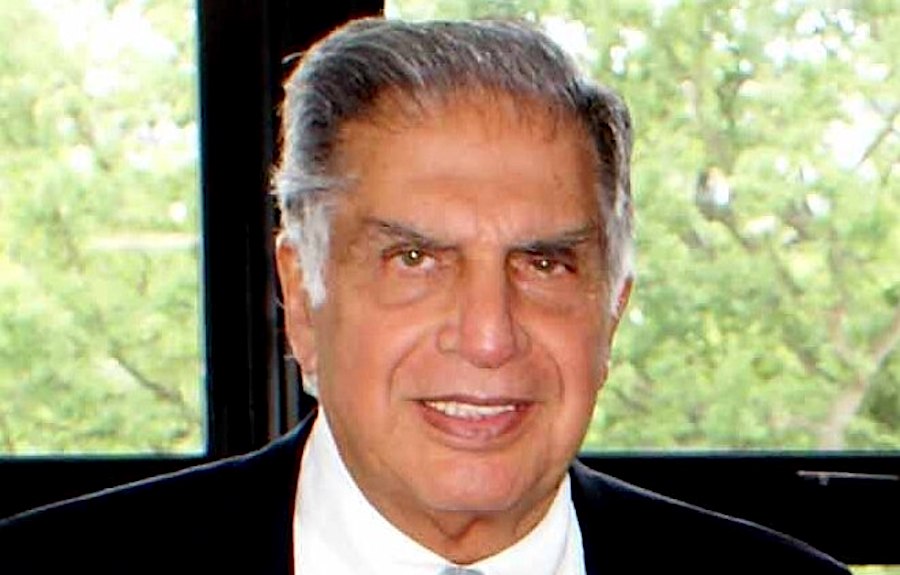
The half-brother of Ratan Tata was appointed on Friday as the head of the powerful and influential philanthropic arm of India’s Tata group, giving him indirect control of the $165 billion conglomerate.
Tata Trusts said Noel Tata, 67, will be its new chairman after the death this week of Ratan Tata, one of India’s best-known corporate titans. The decision followed “many old-timers” in the group wanting him to lead the venture, said one Tata executive.
The parent company, Tata Sons, oversees 30 firms across consumer goods, hotels, automobiles and airlines and has become a global juggernaut over the years, with brands such as Jaguar Land Rover and Tetley Tea in its stable.
It owns Tata Consultancy Services, Taj Hotels and Air India, and counts Starbucks and Airbus as partners in India.
Tata Trusts has a 66% ownership of Tata Sons, giving it power over big investment, philanthropic and strategic decisions by the conglomerate, company executives say.
Noel Tata, who is half-French, was already among the many trustees of the philanthropic arm, and also vice chairman of Tata Steel and chairman of Tata’s popular retail fashion brand Trent.
“Noel is well versed with how Tata businesses are run. In retail, many people thought how will Tata compete with the big retailers. Noel has shown it,” said Sanjay Singh, a former Tata Sons executive who retired in 2019.
“He has kept a low profile so the outer world doesn’t know him well, but he is quintessential Tata.”
The trust earns dividends from Tata Sons but has no direct say over its operations. However, it appoints a third of the directors to Tata Sons who have veto power over board decisions.
The chairman of Tata Trusts “is powerful enough to decide board and key personnel” appointments at Tata Sons, a second senior company executive said.
While Tata Sons is not compelled to seek advice or guidance from the philanthropic arm, it’s an “unsaid understanding” that there is consultation between leadership on both sides, the first executive added.
The Tata group was set up in 1868 by Ratan’s great grandfather, Jamsetji Tata.
A few years later, Jamsetji started charity work that has since expanded to sectors such as healthcare and sports, through many of the trusts in the philanthropic arm.
Ratan Tata started working at the family firm in 1962 and became the chairman of Tata Sons in 1991, taking the group to new heights while gaining a reputation as an extremely shy, soft-spoken executive with sharp business acumen.
Noel Tata is a graduate of Sussex University who has been associated with the group for more than 40 years. He serves on the board of various Tata companies.
As a previous managing director of Tata International, Noel grew the turnover of the trading arm to more than $3 billion from $500 million, a Tata Group website said.
The Tatas belong to the tiny Parsi community, which has included some of India’s biggest business names, top nuclear scientists, world-class musicians and senior military officers.
Parsis follow the Zoroastrian faith, an ancient pre-Islamic religion of Iran. Some of its tenets, such as charity and doing good to others, have long been woven into the Tata heritage and business ethos.
Much of the dividend paid out by Tata Sons gets funneled into charitable trusts involved in philanthropic work.
Although the trusts’ influence over the group is not often on display, the starkest such example was in 2016, when Ratan Tata had a falling out with Tata Sons chairman Cyrus Mistry that led to the latter’s ouster.
Mistry, another Parsi billionaire whose family owns a stake of about 18% in Tata Sons, died in a car accident in 2022.
One of his former advisers told Reuters this week that the Tata Trusts “without a doubt” exert unparalleled power over Tata Sons’ functions, adding that they “work behind a veil.”
Noel is an Irish citizen married to Mistry’s sister.
(By Aditya Kalra, Aditi Shah, Krishn Kaushik and Tanvi Mehta; Editing by Raju Gopalakrishnan and Frances Kerry)
Comments